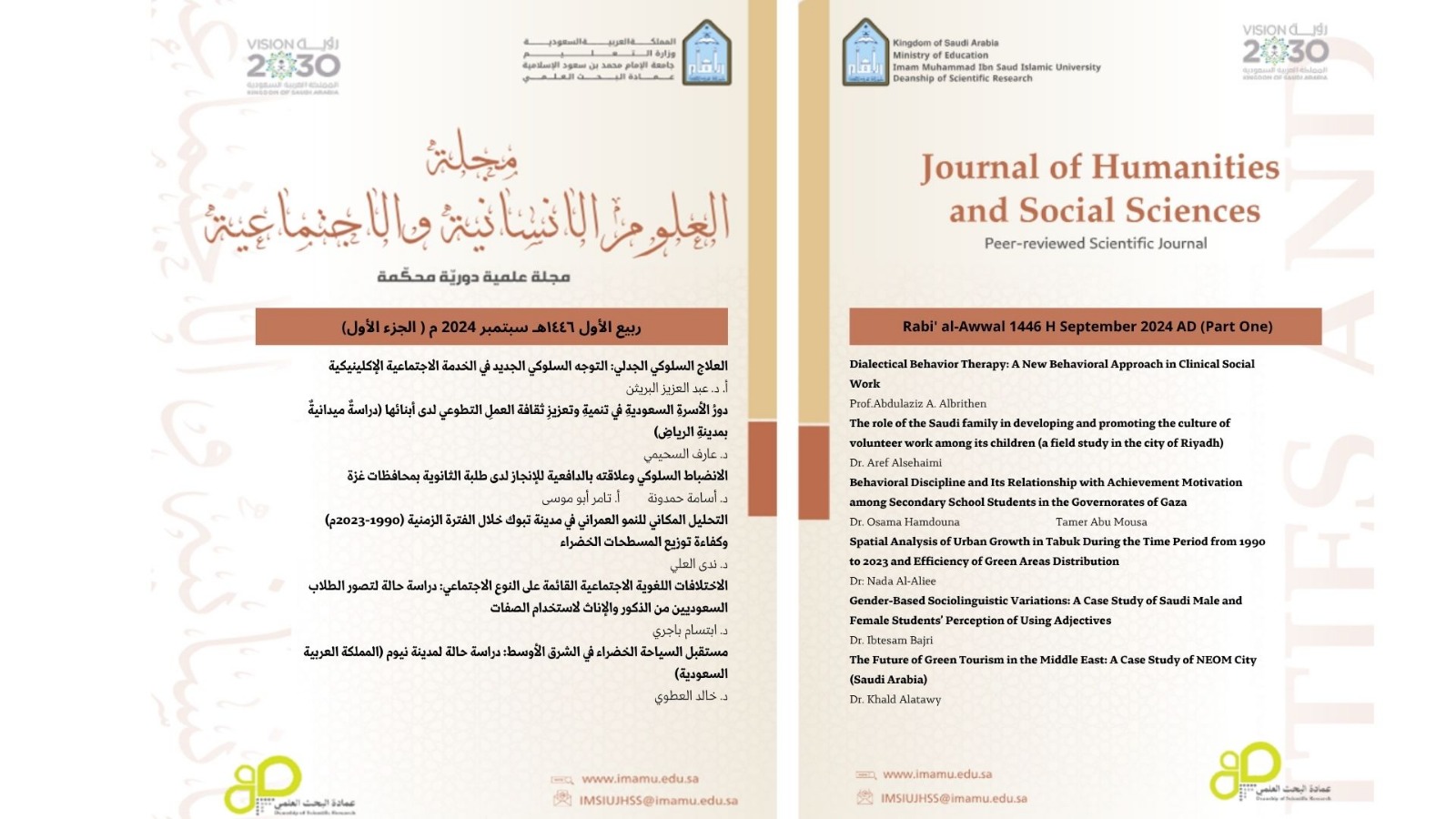Gender-Based Sociolinguistic Variations: A Case Study of Saudi Male and Female Students’ Perception of Using Adjectives
Keywords:
Gender; cultural norms; adjectives; quantitative analysisAbstract
Gender disparities signify characters who act or think differently depending on their gender. The goal of the current study is to identify the types and groups of expressions, and adjectives that Saudi men and Saudi women use to address one another. However, depending on the gender, many idioms have specific connotations that only apply to men or women. These phrases can only be used for males or girls, based on a person's gender and societal norms, according to Saudi cultural norms. Data is gathered quantitatively by a survey, which was printed in both Arabic and English and distributed to participants. Twenty Saudi male and twenty Saudi female students from King Abdulaziz and Jeddah universities are taking part in this study as a sample of the research community. For the quantitative analysis of the data collected for the study, SPSS is used. The findings of this study are consistent with its objectives and research questions. It discovers the existence of gender-based sociolinguistic variations and how they are employed by each gender to describe males and females. The study also advances sociolinguistics, notably in the areas of language and gender. As a useful contribution, this study informs Saudi Arabian educators and students about the proper attributes for men and women.




